#maaza mengiste
Text
The Hollywood Reporter Roundtable Analysis
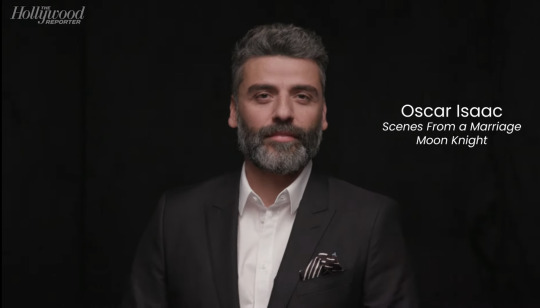
It was very intriguing for me how Oscar carefully delved into the question he was given by the host Lacey in 38:45, but in a slight surface-level way. Some information he's given in other times filled up a lot of the blanks he left behind in his answer.
First let's go over what they said.
Lacey: Your co-star from Scenes From a Marriage, Jessica Chastain, talked about [how] she had to go to a place that was so dark, and she's not sure she can sort of ever go to these places as an actress again. And I'm curious if you've felt any of that and how your individual, personal sort of boundaries shift with time, with experience, with success.
Oscar: You know, before I'd be like: "what limb do I have to take—cut off to make this scene three percent better?" But I think that it's about inspiration. [...] The whole reason process exists is to inspire, right? And sometimes you don't need a wild process to be inspired by something. Sometimes the words themselves will do it, um, sometimes the character is enough. Sometimes the situation is so harrowing that that's enough to inspire a whole history of a character. And sometimes you gotta: "what did he eat for breakfast? why did he do this?" In order to try, y'know, to inspire some imagination and some sense of truth, right, or some sense of—some emotional, interesting thing.
Oscar [continued]: But boundaries, I think, are becoming more important to me now. And then you have kids. Time is the most valuable commodity. And I think with Scenes From a Marriage, the scenes themselves—that [was what was] so harrowing, not so much the character. But also it mirrored a lot of things in my own life. [...] I'd be reading a bed time story to the young actress that's a five-year-old with a little bunny lamp, and then go home, arrive just in time to sit in the bed with the same exact bunny lamp, somehow, and read a story to my five-year-old— You know, it just starts to fuck with your head, because we're just a human being, so that's a weird situation! [...]
Oscar [yeah he makes up for not talking for almost the entire hour with this question]: After a while, I think it was just all the nature of it, you know? It was right in the height of the pandemic. It was in this factory in the Bronx that had been turned into a studio. It was only like sixty people. And these were very long—almost every shot was like a thirty-minute take. It felt like a weird hybrid between theatre and TV and film. And with someone that I've known for twenty years as well—so all those things created a very uncanny situation, that I think, going back, I probably would have been a little more mindful about. Like, y'know, a little clearer boundaries— And the truth is, even if it wouldn't have been quite as real or good (you know?), I'm okay with—I'm getting better with that idea that—I don't have to cut off a limb just to make it slightly better. It's okay. It's okay.
First off, i just wanna gush over his speech patterns bc I am that all over the place when I try to communicate my thoughts (i actually skipped a lot of his endearing stutters, pet phrases, and filler things he said to grasp at his next message). It's so relatable especially in a group full of people (not to mention legendary actors), because even a guy who looks as confident as him can still sound like he's making a discovery as he speaks and takes you along.
Now on to my analysis of what he said because at first I didn't completely get what he meant!
I have a feeling he's very perfectionistic, and from how he speaks about work in other articles as well as here, he also seems a workaholic. I believe in here he's trying to say that there should be different levels of immersion and hard work to connect with or explore the character instead of always bringing his all and beyond to the job.
Also, scenes from a marriage was as traumatic an experience to film as it was for us to watch (his words after 1:56 on this vid), and Jessica admitted to crying every day for four months during filming. It was a very intimate and emotionally intense series to film especially with such a close friend from Juilliard. So i believe both Oscar and Jessica gave everything they had to make this already overwhelming series feel as real and painful as possible. And since it's a hard setting to feel far removed from (both are married, have kids, have a sex life, could be facing divorce in the future bc of its high rates), it must have hit them even harder. I believe it's not truly an experience to watch sfam without you screaming at, insulting, or feeling immensely sorrowful for the characters because THAT is the reaction they fought hard to get from you. That pain, that anxiety, that tension, that rage, that pity, every emotion you felt that you could barely cope with? All crafted thanks to their extremely immersive and talented performance coupled with their flawless chemistry. But if it feels real to us, through a screen…for them it must've felt even more so. Unbearably more so.
So i believe these experiences, as well as having a family to take care of, and other priorities like time and mental health, have recently made it more important for him to strike a balance in his life. To stop obsessing over creating the perfect role or immersion, or to use these roles to cope with and process real life struggles (as he's admitted to do). I think it's important for him to now connect with real life more, like being a father and a husband, as well as just a human being. Not just an actor or a character.
≿━━━━༺❀༻━━━━≾
Important Excerpts from Articles about escapism and coping through acting (in case you don't feel like reading the last references):
New York Times: After His Mother’s Death, Oscar Isaac Turns to Shakespeare for Solace
“I didn’t know how to process any of this, but this [performing as Hamlet] I knew how to do.”
But [Hamlet is] also a tragedy that asks Mr. Isaac to relive the anguished death of a parent at every performance. In Sam Gold’s rowdy, deconstructionist staging, every time Mr. Isaac mud-wrestles, or lofts a prop skull or performs a mad scene in just a T-shirt and briefs, he seems to be working through his own loss, transforming raw private grief into riveting public performance.
As Mr. Isaac explained, performing has always helped him come to terms with his emotions. “This is how I’m able to function,” he said. “The only way that I’m really able to process stuff is through reflecting it.”
Esquire: The Dream of Oscar Isaac
To be in conversation with Oscar Isaac, who is forty-three, is to talk with someone who has thought deeply about the course of his life—not out of narcissism or vanity but by necessity, a desperate desire to find what feels like solid ground. For him. For his family. For us, whom his art reaches. He has worked to wrest meaning out of his confusions and fears. His effort is ongoing, and his audiences have the privilege of following him in his relentless and shattering performances, in search of the firm footing he lost every time another of his dreams was interrupted.
If superheroes have their capes and their flamethrowers to help them survive, we ordinary humans have our imagination. It has been our shelter for millennia, a way to express and to understand what feels incomprehensible. When it all gets too heavy, sometimes the fragile rope tethering us to solid ground snaps clean, and there is often no refuge sturdy enough to put us back together except in the intimate, private shelter of our minds.
NPR: For Oscar Isaac, life — and acting — is all about impermanence
“It [acting] is a funnel, and it's always been where I go to understand things about life and things that are happening to me. But it's one thing to grieve as a character and one thing to grieve as an actual person. And I think that there's still quite a lot of unresolved stuff there.”
I hope you enjoyed this post! I had to organize all my thoughts in one place because it's so fascinating and complex
#oscar isaac#oscar isaac hernandez estrada#the hollywood reporter#actors roundtable#the dream of oscar isaac#new york times#esquire#maaza mengiste#scenes from a marriage analysis#scenes from a marriage 2021#scenes from a marriage#sfam#long post.#perfectionism#workaholism#oscar isaac roles#oscar isaac analysis#oscar isaac meta#long post
63 notes
·
View notes
Text
From Facebook, Abraham Verghese posts this excerpt from a review in The Guardian.
“I woke up to this rave review from Booker-shortlisted author Maaza Mengiste in The Guardian. What a dream!”
"Abraham Verghese’s riveting, sprawling epic opens with a mother and her 12-year-old daughter crying… This is a novel – a splendid, enthralling one – about the body, about what characters inherit and what makes itself felt upon them. It is the body that contains ambiguities and mysteries. As in his international bestseller Cutting for Stone, Verghese’s medical knowledge and his mesmerising attention to detail combine to create breathtaking, edge-of-your-seat scenes of survival and medical procedures that are difficult to forget. Tenderness permeates every page, at the same time as he is ruthless with the many ways his characters are made vulnerable by simply being alive. Those scenes when a person must fight for their life make for some of the most gripping episodes that I have read in some time… The Covenant of Water contains a larger question of community and belonging, one that feels most important in these days of escalating political wars and tensions: is it possible to be fragile and wounded, and still necessary and loved? The answer is rendered with care by a writer who looks at the world with a doctor’s knowing, merciful gaze. As much as any moral reckoning or catastrophic plot point, this is why literature, in all its comforting and challenging forms, matters.”

5 notes
·
View notes
Text
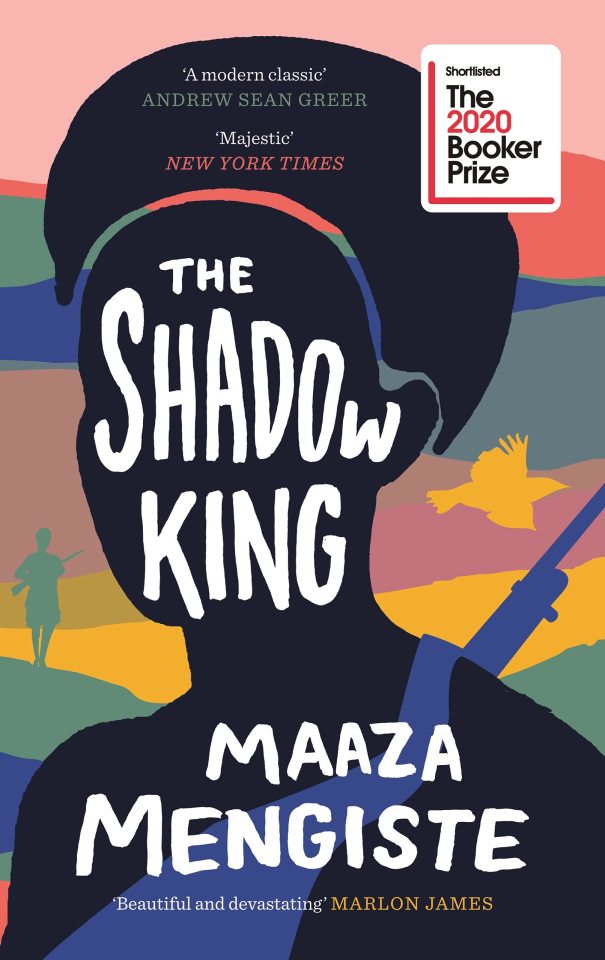
Title: The Shadow King | Author: Maaza Mengiste | Publisher: W. W. Norton & Company (2019)
0 notes
Text

Novella Submissions Open!
Following on from our anthologies Other & Different (2023) and forthcoming Other Worlds (2024), we will be concluding our Othered series with two novellas, slated for 2025.
Submissions open to people from underrepresented and/or marginalised communities or backgrounds.
These include, but are not limited to: LGBTQIA+, BIPOC, neurodiverse and people with disabilities.
Submissions open 1 – 30th April 2024
Theme: We’re looking for stories that explore what it is to be other and/or different, whether as an individual, group, community or society.
We leave it up to the authors how they wish to explore this. We welcome stories that explore the effects of being othered, the positive and negative repercussions, whether acceptance is finally found or if it is even required or wanted.
Word Count: 17,000 minimum, 25,000 word maximum – hard limits
This word count falls on the shorter end of novellas (as defined by SFWA/Nebula Awards), and some definitions may class this as a novelette.
Genre: Although the majority of our submissions are often speculative we do and have published romance, historical fiction, contemporary fiction, and more. We strongly encourage submissions of all genres.
For inspiration, here are some examples of Othered stories we’ve enjoyed:
Out of Darkness Shining Light by Petina Gappah
The Ballad of Black Tom by Victor LaValle
The shadow king by Maaza Mengiste
Andrion by Alex Penland
Frankenstein by Mary Shelley
The Minotaur Takes a Cigarette Break by Steven Sherrill
The Child of Hameln by Max Turner
Oranges Are Not the Only Fruit by Jeanette Winterson
Rating: All ratings welcome.
NO Reprints, NO Simultaneous Submissions, NO multiple submissions
Compensation:
£200 per accepted novella
Royalties
6 author copies
For full details and to submit check out our website!
40 notes
·
View notes
Text

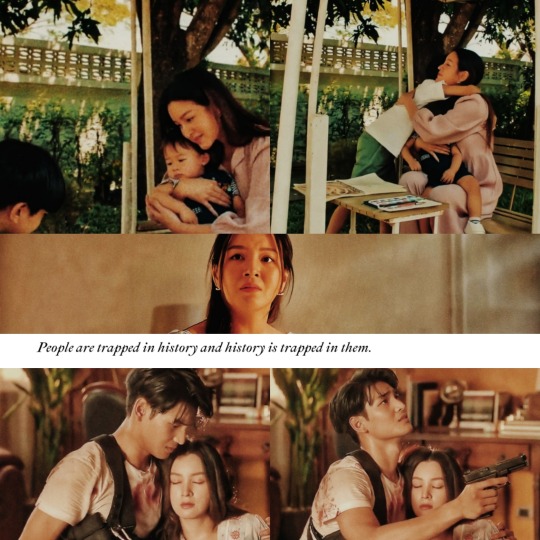

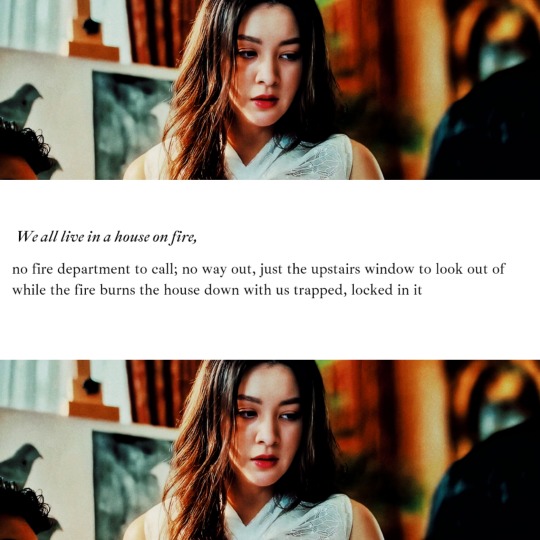
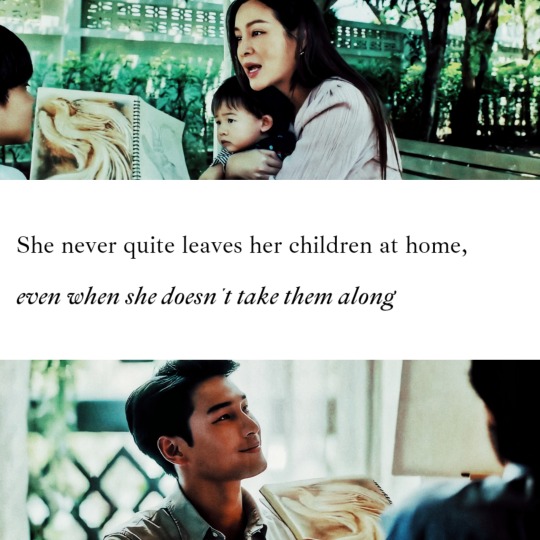


Namphueng Kittisawasd
Maaza Mengiste, The Shadow King/Arti Manani, Seven Sins/James Baldwin/ Rise Above Twilight, Kayla Krantz/Tennessee Williams The Milk Train Doesn't Stop Here Anymore/Margaret Culkin Banning/ Kristin Hannah, The Nightingale/ Courtney M. Privett, Rain Falls on Malora/Sara Grant, Neva
#kinnporsche#kinnporschesource#namphueng#ondreamytracks#tusersilence#userjjessi#vishingwell#lightmiup#tuserhidden#usergooseras#userspicy#usermor#userjap#userjyu#usermone#usernuria#userpharawee#toboysbeloving#tosnimeat#tonanons#igtf edits#kpww
93 notes
·
View notes
Note
reading wrap up 2022 GO
ok so my goal this year was to read 100 books and then i went ahead and read 109. and if i read the locked tomb series three times through that's no one's business but mine <3
italics are queer, bold are amazing, bold italics are queer and amazing
jan:
middlesex - jeffrey eugenides
the mountains sing - nguyên phan qué mai
the vegetarian - han kang
the galaxy and the ground within - becky chambers
to be taught, if fortunate - becky chambers
when we were orphans - kazuo ishiguro
americanah - chimamanda ngozi adichie
h of h playbook - anne carson
klara and the sun - kazuo ishiguro
the space between worlds - micaiah johnson
feb:
normal people - sally rooney
circe - madeline miller
blood of elves - andrzej sapkowski
gideon the ninth - tamsyn muir
time of contempt - andrzej sapkowski
baptism of fire - andrzej sapkowski
march:
the tower of the swallow - andrzej sapkowski
lady of the lake - andrzej sapkowski
harrow the ninth - tamsyn muir
the last wish - andrzej sapkowski
we should all be feminists - chimamanda ngozi adichie
a memory called empire - arkady martine
burnt sugar - avni doshi
a psalm for the wild built - becky chambers
april:
the alchemist - paul coelho
sword of destiny - andrzej sapkowski
oranges are not the only fruit - jeanette winterson
the colour purple - alice walker
the midnight library - matt haig
where the crawdads sing - delia owens
10 minutes 38 seconds in this strange world - elif shafak
the discomfort of evening - marieke lucas rijneveld
crying in h mart - michelle zauner
my year of rest and relaxation - ottessa moshfegh
the shadow king - maaza mengiste
the virgin suicides - jeffrey eugenides
sapiens - yuval noah harari
the manningtree witches - a. k. blakemore
may:
parable of the sower - octavia butler
hot milk - deborah levy
an unkindness of ghosts - rivers solomon
the water dancer - ta-nehisi coates
pure colour - sheila heti
this is how you lose the time war - amal el-mohtar & max gladstone
five little indians - michelle good
june:
indian horse - richard wagamese
ducks, newburyport - lucy ellmann
the vanishing half - brit bennett
medicine walk - richard wagamese
crier's war - nina varela
a quality of light - richard wagamese
after the quake - haruki murakami
death in her hands - ottessa moshfegh
the school for good mothers - jessamine chan
bluets - maggie nelson
of women and salt - gabriela garcia
lapvona - ottessa moshfegh
mcglue - ottessa moshfegh
songbirds - christy lefteri
july:
to paradise - hanya yanagihara
sankofa - chibundu onuzo
the argonauts - maggie nelson
jane: a murder - maggie nelson
eileen - ottessa moshfegh
iron widow - xiran jay zhao
homesick for another world - ottessa moshfegh
a desolation called peace - arkady martine
the art of cruelty: a reckoning - maggie nelson
the witch's heart - genevieve gornichec
dune - frank herbert
aug:
never let me go - kazuo ishiguro
the island of missing trees - elif shafak
the marriage plot - jeffrey eugenides
almond - won-pyung sohn
all over creation - ruth ozeki
the water cure - sophie mackintosh
drive your plow over the bones of the dead - olga tokarczuk
sep:
the remains of the day - kazuo ishiguro
the blind assassin - margaret atwood
go set a watchman - harper lee
a pale view of hills - kazuo ishiguro
seven fallen feathers - tanya talaga
an artist of the floating world - kazuo ishiguro
the atlas six - olivie blake
the inconvenient indian - thomas king
a tale for the time being - ruth ozeki
ru - kim thuy
split tooth - tanya tagaq
wintering - katherine may
nomad century - gaia vince
dune messiah - frank herbert
the unbearable lightness of being - milan kundera
oct:
nona the ninth - tamsyn muir
indians on vacation - thomas king
severance - ling ma
nocturnes - kazuo ishiguro
nona the ninth - tamsyn muir
a prayer for the crown-shy - becky chambers
nov:
gideon the ninth - tamsyn muir
harrow the ninth - tamsyn muir
nona the ninth - tamsyn muir
embers - richard wagamese
dec:
starlight - richard wagamese
the buried giant - kazuo ishiguro
autobiography of red - anne carson
notes on grief - chimamanda ngozi adichie
cloud cuckoo land - anthony doerr
on fire: the burning case for a green new deal - naomi klein
sufferance - thomas king
#thanks for asking bro!!#read some bangers this year that's for sure#read some stinkers too but hey#gotta cast your net wide right#hope you had a great reading year too!!#yes tamsyn muir owned my entire ass this year and what about it#if anyone has great recs that align with the greats i've read this year i am all ears!!!#happy holidays my bro#book recs
100 notes
·
View notes
Text
" Despite all this, PEN America has declined to join other leading human rights organizations and United Nations officials in the demands for an immediate and unconditional ceasefire.
This failure is particularly striking in light of the extraordinary toll this catastrophe has taken in the cultural sphere. Israel has killed, and at times deliberately targeted and assassinated journalists, poets, novelists, and writers of all kinds. It has destroyed almost all forms of cultural infrastructure that support the practice of literature, art, intellectual exchange, and free speech through the bombing and demolition of universities, cultural centers, museums, libraries, and printing presses. By disrupting access to digital communication, Israel has also been blocking Palestinians from sharing what they have witnessed and experienced and telling the truth of what is happening to them. Everyone who uses the power of the pen and free speech to appeal to the conscience of the world is at risk.
In less than five months, Israel has killed nearly one hundred journalists and media workers, more than in the two-decade war in Afghanistan, and more than in the deadliest year of the Iraq War. Israel has also killed nearly one hundred academics and writers. If organizations like PEN America cling to the illusion of political neutrality in the face of a clear effort to destroy Palestinian lives and culture, one can only wonder whether there will be any writers left in Gaza to tell the story of their apocalypse, or to trust words and speech, when the killing finally ends. Or any record left of the history they have lived.
Scholars are increasingly reaching for novel words to describe the scope of Israel’s cultural genocide. Words like “scholasticide” are invoked to describe the elimination of systems of education and “epistemicide” to describe the erasure of systems of knowledge. In contrast, PEN America, took four and half months to utter the word “ceasefire,” then only with a vague “hope” for one that is “mutually agreed,” rather than a clear call. We expect more from an organization that exists for the express purpose of protecting freedom of speech and thought, and advancing a vision of our common humanity."
Equally concerning is PEN America’s history of condemning authors who choose to honor the Palestinian call for a cultural and academic boycott of Israeli institutions complicit in their oppression, accusing them of impeding “the free flow of ideas.” It seems to us that this violates several principles at the heart of PEN’s mission. To begin with, the idea that BDS, which does not boycott individual writers or scholars, can impede the “free flow of ideas” in Israel-Palestine assumes that such a thing exists there. In fact, it is a cruel fantasy so long as Palestinians live under a rule reliant on racial segregation and the implementation of ethnic hierarchies, siege and collective punishment, the very conditions BDS seeks to end.
Second, condemning authors who choose to support BDS contradicts PEN’s own mandate to protect freedom of expression, as it contributes to a neo-McCarthyite environment in North America and Europe, in which the growing support for BDS is increasingly criminalized. Third, opposition to BDS overlooks the long and proud history of the boycott as an effective, nonviolent tool of collective liberation. Just as boycott was a principal tool used to successfully end political apartheid in South Africa, so it should be accepted that some are free to adopt it as a vital tool in the nonviolent resistance movement against Israeli impunity today."
#palestine#free palestine#isreal#gaza#apartheid#genocide#colonization#us politics#american imperialism#pen america
6 notes
·
View notes
Text
2023 in books: fiction edition
literary fiction published 2013-2023 (based on English translation)
The Employees by Olga Ravn (⭐⭐⭐⭐⭐)
Detransition Baby by Torrey Peters (⭐⭐⭐⭐⭐)
When We Cease to Understand the World by Benjamín Labatut (⭐⭐⭐⭐⭐)
There’s No Such Thing As an Easy Job by Kikuko Tsumura (⭐⭐⭐⭐⭐)
Human Acts by Han Kang (⭐⭐⭐⭐⭐)
Bunny by Mona Awad (⭐⭐⭐⭐⭐)
Frankissstein by Jeanette Winterson (⭐⭐⭐⭐⭐)
All Your Children Scattered by Beata Umubyeyi Mairesse (⭐⭐⭐⭐⭐)
Mister N by Najwa Barakat (⭐⭐⭐⭐⭐)
Fever Dream by Samanta Schweblin (⭐⭐⭐⭐)
Gideon the Ninth by Tamsyn Muir (⭐⭐⭐⭐)
Brickmakers by Selva Almada (⭐⭐⭐⭐)
True Biz by Sara Nović (⭐⭐⭐⭐)
Abyss by Pilar Quintana (⭐⭐⭐⭐)
The Meursault Investigation by Kamel Daoud (⭐⭐⭐⭐)
Frankenstein in Baghdad by Ahmed Saadawi (⭐⭐⭐⭐)
Spring Garden by Tomoka Shibasaki (⭐⭐⭐⭐)
Rombo by Esther Kinsky (⭐⭐⭐⭐)
Concerning My Daughter by Kim Hye-Jin (⭐⭐⭐⭐)
The House of Rust by Khadija Abdalla Bajaber (⭐⭐⭐⭐)
Men without Women by Haruki Murakami (⭐⭐⭐)
The Sky Above the Roof by Natacha Appanah (⭐⭐⭐)
Sweet Bean Paste by Durian Sukegawa (⭐⭐⭐)
Luster by Raven Leilani (⭐⭐⭐)
Solo Dance by Li Kotomi (⭐⭐⭐)
Untold Night and Day by Bae Suah (⭐⭐⭐)
The Shadow King by Maaza Mengiste (⭐⭐⭐)
The Deep by Rivers Solomon (⭐⭐⭐)
Afterlives by Abdurazak Gurnah (⭐⭐⭐)
Wreck the Halls by Tessa Bailey
Indelicacy by Amina Cain (⭐⭐⭐)
Out of Love by Hazel Hayes (⭐⭐⭐)
Freshwater by Akwaeke Emezi (⭐⭐⭐)
The Reactive by Masande Ntshanga (⭐⭐⭐)
The Houseguest: And Other Stories by Amparo Dávila (⭐⭐)
The Glutton by A.K. Blakemore (⭐⭐)
Homebodies by Tembe Denton-Hurst (⭐⭐)
Nervous System by Lina Meruane (⭐⭐)
Owlish by Dorothy Tse (⭐⭐)
The President and the Frog by Carolina de Robertis (⭐⭐)
The Magic of Discovery by Britt Andrews (⭐)
literary fiction published 1971-2012
House of Leaves by Mark Z. Danielewski (⭐⭐⭐⭐⭐)
The Vampire Lestat by Anne Rice (⭐⭐⭐⭐⭐)
Corregidora by Gayl Jones (⭐⭐⭐⭐⭐)
Signs Preceding the End of the World by Yuri Herrera (⭐⭐⭐⭐⭐)
Changes: A Love Story by Ama Ata Aidoo (⭐⭐⭐⭐⭐)
Open City by Teju Cole (⭐⭐⭐⭐⭐)
The Lover by Marguerite Duras (⭐⭐⭐⭐⭐)
Mild Vertigo by Mieko Kanai (⭐⭐⭐⭐⭐)
Abandon by Sangeeta Bandyopadhyay (⭐⭐⭐⭐⭐)
Toddler Hunting and Other Stories by Taeko Kōno (⭐⭐⭐⭐⭐)
Parable of the Sower by Octavia E. Butler (⭐⭐⭐⭐)
Elena Knows by Claudia Piñeiro (⭐⭐⭐⭐)
Ceremony by Leslie Marmon Silko (⭐⭐⭐⭐)
Perestroika by Tony Kushner *a play (⭐⭐⭐⭐)
Strange Weather in Tokyo by Hiromi Kawakami (⭐⭐⭐⭐)
By Night in Chile by Roberto Bolaño (⭐⭐⭐⭐)
Drive Your Plow over the Bones of the Dead by Olga Tokarczuk (⭐⭐⭐⭐)
Three Strong Women by Marie NDiaye (⭐⭐⭐⭐)
Kingdom Cons by Yuri Herrera (⭐⭐⭐⭐)
Paradise Rot by Jenny Hval (⭐⭐⭐⭐)
The God of Small Things by Arundhati Roy (⭐⭐⭐⭐)
A Mountain to the North, A Lake to the South, Paths to the West, a River to the East by Laszlo Krasznahorkai (⭐⭐⭐⭐)
Interview with the Vampire by Anne Rice (⭐⭐⭐⭐)
Queen Pokou by Véronique Tadjo (⭐⭐⭐)
The Private Lives of Trees by Alejandro Zambra (⭐⭐⭐)
The Hour of the Star by Clarice Lispector (⭐⭐⭐)
Sweet Days of Discipline by Fleur Jaeggy (⭐⭐⭐)
Mr. Potter by Jamaica Kincaid (⭐⭐⭐)
Bluebeard’s First Wife by Ha Seong-nan (⭐⭐⭐)
The Body Artist by Don DeLillo (⭐⭐⭐)
Glaciers by Alexis M. Smith (⭐⭐⭐)
Curtain by Agatha Christie (⭐⭐⭐)
The Iliac Crest by Cristina Rivera Garza (⭐⭐⭐)
My Name Is Red by Orhan Pamuk (⭐⭐⭐)
The Dovekeepers by Alice Hoffman (⭐⭐⭐)
Like Water for Chocolate by Laura Esquivel (⭐⭐⭐)
Rashomon and Seventeen Other Stories by Ryūnosuke Akutagawa (⭐⭐)
Coraline by Neil Gaiman (⭐⭐)
The End of the Moment We Had by Toshiki Okada (⭐⭐)
The Optimist’s Daughter by Eudora Welty (⭐)
literary fiction published start of time-1970
Catch-22 by Joseph Heller (⭐⭐⭐⭐⭐)
🔁 The Stranger by Albert Camus (⭐⭐⭐⭐⭐)
The Heart Is a Lonely Hunter by Carson McCullers (⭐⭐⭐⭐⭐)
🔁 One Hundred Years of Solitude by Gabriel García Márquez (⭐⭐⭐⭐⭐)
The Posthumous Memoirs of Brás Cubas by Machado de Assis (⭐⭐⭐⭐⭐)
Empty Wardrobes by Maria Judite de Carvalho (⭐⭐⭐⭐⭐)
Stoner by John Williams (⭐⭐⭐⭐⭐)
The Chandelier by Clarice Lispector (⭐⭐⭐⭐)
An Apprenticeship, or the Book of Pleasures by Clarice Lispector (⭐⭐⭐⭐)
The Woman in the Dunes by Kōbō Abe (⭐⭐⭐⭐)
As I Lay Dying by William Faulkner (⭐⭐⭐⭐)
Nightwood by Djuna Barnes (⭐⭐⭐⭐)
Dracula by Bram Stoker (⭐⭐⭐⭐)
Chess Story by Stefan Zweig (⭐⭐⭐⭐)
Aura by Carlos Fuentes (⭐⭐⭐⭐)
Fathers and Sons by Ivan Turgenev (⭐⭐⭐)
All Passion Spent by Vita Sackville-West (⭐⭐⭐)
The Hole by José Revueltas (⭐⭐⭐)
Baron Bagge by Alexander Lernet-Holenia (⭐⭐⭐)
Carmilla by J. Sheridan Le Fanu (⭐⭐)
Barabbas by Pär Lagerkvist (⭐)
11 notes
·
View notes
Text
youtube
Part one of actors reading out South Africa's case file against Israel at the ICJ.
Full list of participants:
Khalid Abdalla, Tunde Adebimpe, Gbenga Akinnagbe, Adam Bakri, Kathleen Chalfant, Steve Coogan, Liam Cunningham, Charles Dance, Stephen Dillane, Inua Ellams, Paapa Essiedu, Lena Headey, Aida El-Kashef, Maaza Mengiste, Tobias Menzies, Sepideh Moafi, Indya Moore, Peter Mullan, Cynthia Nixon, Maxine Peake, Dario Ladani Sanchez, Susan Sarandon, Maisie Richardson Sellers, Alia Shawkat, Wallace Shawn, Morgan Spector, Carice van Houten, Harriet Walter, Zukiswa Wanner
6 notes
·
View notes
Text
Maaza Mengiste has written the most wonderful, gorgeous, treasured, poetic, profound article I have ever read, and i am so glad she spilled all those words to tell us an actually riveting and fascinating (and even subtly heartbreaking) story of Oscar Isaac's life. I want to read everything she has written.
Everyone check out her Esquire article about Oscar, it feels like a dream from how all-encompassing and immersive it is.
I'm gonna talk about it a bit so read it before getting spoiled by me.
I feel like this article, unlike literally any other piece of content or media about him, gave me such meaty psychological information, about how he thinks, about how his experiences shaped him, about what he believes, about how he copes. It was a story interweaved with so much care, so much tenderness as it was putting his life out for all the world to see. I can tell that a man as charming, as funny even during his grieving process (like during the Hamlet theatre set in between rehearsals), perhaps as proud and private as Óscar, felt comfortable for the first time to dig deep into things that he had all the right to keep to his chest.
Of course, there's another article (and perhaps a few more) that mentions some of these important parts of his life, but there's something about Maaza, who absorbs these stories. She analyzes them. She explores his psyche behind his words, and shows what she finds to us. It's so entrancing.
It clarifies the mystery to me, about how he depends on his characters, on these really intense months with new co-stars or co-theatre-actors, to truly feel and process all the wonders and tragedies that life throws at us. It explains why he plays characters with so many struggles (many of them struggles of loss, particularly the loss of parents, or of childhood trauma), and why he says that each of them represents a part of him that lies dormant, waiting to be triggered or awoken by a different situation in life. It explains why he plays Hamlet, and Jonathan Levy, and Llewyn Davis, and Marc Spector, who all hold so much resentment yet so much longing towards their parents, these parents who either are in the process of slipping from these men's hands, or have died already.
The detachment, the outsider-complex, the mixed and complex identity, the chaotic and unstable life of moving and moving and moving, the trauma of death and new life happening at the very same time, all feed this need to bury oneself into someone else, just for a while. To get to know this other someone, to discover all their different intonations and emotions and behavior and dreams and fears. To connect with this someone else that is inhabiting your body, in an indirect, third-person way. Disconnecting from your soul to watch yourself from the outside. Learning about who you are (or could be) from a safe place.
I do this in writing all the time. It's truly a normal thing, to wish to get lost in something, in art, to see yourself through that because you can't understand your identity on your own. It may not be the healthiest coping mechanism in the world, but it's a human response. To twist the chaos of your life, the confusion of your pain, into a story. Into a character. Even into a celebrity. (Am i doing that right now? Perhaps.)
I just hope to keep analyzing that and arriving at a safer, healthier place myself. To resolve things internally, and grieve, instead of choosing to escape. To show who i am to safe loved ones instead of recurring to comedy as an armor. To try to explore myself, rather than explore someone else. I hope we all learn to do this. I hope óscar does too. He deserves to find himself.
#oscar isaac#maaza mengiste#award-winning ethiopian-american female writer#shes the goat I can feel it#esquire#the dream of oscar isaac#i just realized i described it as a dream BECAUSE it was exactly how mengiste intended it#oscar isaac hernandez estrada#moon knight#oscar isaac meta#right? is that a thing?#i say it's a thing#i went haaaard here bc this is my second read and i just KNOW I'll return to this masterpiece for a long time#to understand life and see how pain operates in a different way. it's fascinating. it also helps me see where I could grow#and i do not wish to patronize or say anything we do is Wrong exactly. just that there could be something better. kinder to our heart & mind#we deserve to fill that emptiness in our chests rather than run away from it#marc spector#steven grant#oscar isaac analysis#meta#i am exposing myself out as a true stan of this guy and it's a little terrifying but what can we do#ive never felt this way about an actor before. i guess it's because he always bared his soul on every role. and perhaps ONLY in the role#and not irl
29 notes
·
View notes
Photo
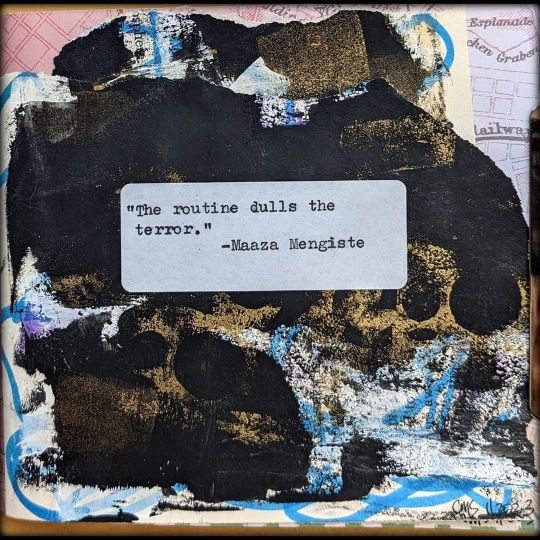
For #junkjournaljanuary. Day 5: Routine. Collage, label, typewriter, acrylic paint.
"The routine dulls the terror." -Maaza Mengiste
#junkjournaljanuary#artjournal#artjournaling#visualjournal#visualjournaling#artjournalpage#artjournals#visualjournals#artistsoninstagram#collage#acrylicpaint#getmessyartjournal#getmessyart#typewriter#quotes#cleanuppage
23 notes
·
View notes
Text

Title: Beneath the Lion's Gaze | Author: Maaza Mengiste | Publisher: Vintage (2011)
0 notes
Text
6 notes
·
View notes
Text
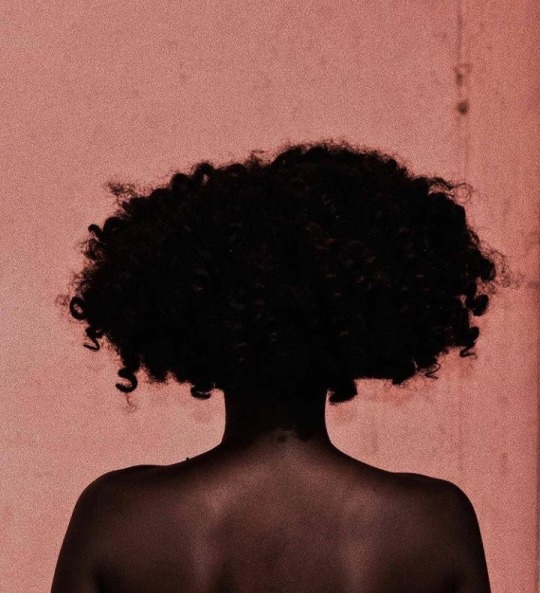
“Memory is the gift of the divine. It is vast and labyrinthine. Imagine it a palace, a building with many rooms. Put details in each room. Give them their rightful place. Light a candle inside the room and illuminate it brightly. Nothing is ever gone. It is always just within reach.”
-Maaza Mengiste, The Shadow King
12 notes
·
View notes